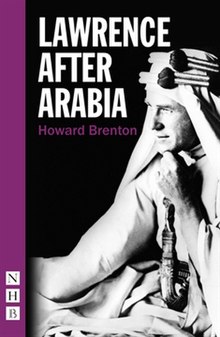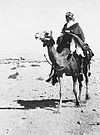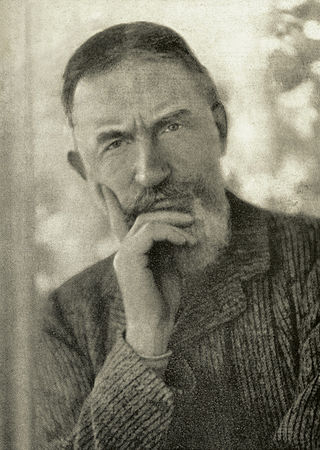
George Bernard Shaw, known at his insistence as Bernard Shaw, was an Irish playwright, critic, polemicist and political activist. His influence on Western theatre, culture and politics extended from the 1880s to his death and beyond. He wrote more than sixty plays, including major works such as Man and Superman (1902), Pygmalion (1913) and Saint Joan (1923). With a range incorporating both contemporary satire and historical allegory, Shaw became the leading dramatist of his generation, and in 1925 was awarded the Nobel Prize in Literature.
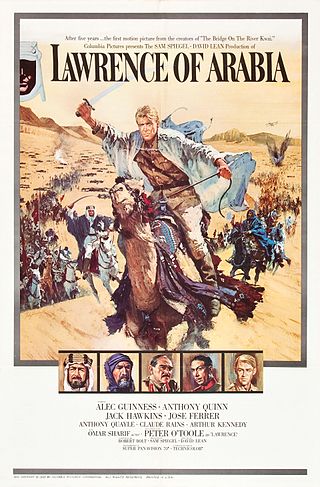
Lawrence of Arabia is a 1962 epic biographical adventure drama film based on the life of T. E. Lawrence and his 1926 book Seven Pillars of Wisdom. It was directed by David Lean and produced by Sam Spiegel through his British company Horizon Pictures and distributed by Columbia Pictures. The film stars Peter O'Toole as Lawrence with Alec Guinness playing Prince Faisal. The film also stars Jack Hawkins, Anthony Quinn, Omar Sharif, Anthony Quayle, Claude Rains and Arthur Kennedy. The screenplay was written by Robert Bolt and Michael Wilson.
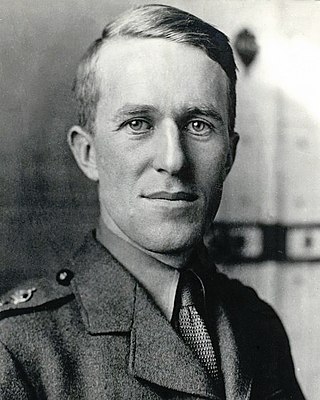
Thomas Edward Lawrence was a British Army officer, archaeologist, diplomat and writer known for his role during the Arab Revolt and Sinai and Palestine campaign against the Ottoman Empire in the First World War. The breadth and variety of his activities and associations, and Lawrence's ability to describe them vividly in writing, earned him international fame as Lawrence of Arabia, a title used for the 1962 film based on his wartime activities.

Seven Pillars of Wisdom is the autobiographical account of the experiences of British Army Colonel T. E. Lawrence while serving as a military advisor to Bedouin forces during the Arab Revolt against the Ottoman Empire of 1916 to 1918.

Michael Vivian Fyfe Pennington is an English actor, director and writer. Together with director Michael Bogdanov, he founded the English Shakespeare Company in 1986 and was its Joint Artistic Director until 1992. He has written ten books, directed in the UK, US, Romania and Japan, and is an Honorary Associate Artist of the Royal Shakespeare Company. He is best known for his role as Moff Jerjerrod in the original Star Wars trilogy film Return of the Jedi.
Howard John Brenton FRSL is an English playwright and screenwriter, often ranked alongside contemporaries such as Edward Bond, Caryl Churchill, and David Hare.

James Edward Carter is an English actor. He is best known for his role as Mr Carson in the ITV historical drama series Downton Abbey (2010–2015), which earned him four nominations for the Primetime Emmy Award for Outstanding Supporting Actor in a Drama Series (2012–2015). He reprised the role in the feature films Downton Abbey (2019) and Downton Abbey: A New Era (2022).

Ross is a 1960 play by British playwright Terence Rattigan.
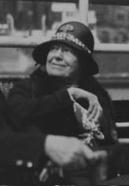
Charlotte Frances Payne-Townshend was an Irish political activist in Britain. She was a member of the Fabian Society and was dedicated to the struggle for women's rights. She married the playwright George Bernard Shaw.
Maxwell Robert Guthrie Stewart "Max" Stafford-Clark is a British theatre director.
Nancy Meckler is an American-born director, known for her innovative approach to theatre, specifically her work in the United Kingdom with Shared Experience, where she was a joint artistic director alongside Polly Teale. Educated in both the USA and England, she has directed for a number of prominent theatres, including the Globe Theatre, the Royal National Theatre, and the Royal Shakespeare Company. She has also directed feature films such as Sister My Sister, and Alive and Kicking/Indian Summer.
Remy Bumppo Theatre Company is a theater in Chicago known for productions from playwrights such as George Bernard Shaw and Tom Stoppard. Marti Lyons serves as the company's Artistic Director.

The Sharifian Army, also known as the Arab Army, or the Hejazi Army was the military force behind the Arab Revolt which was a part of the Middle Eastern theatre of World War I. Sharif Hussein bin Ali of the Kingdom of Hejaz, who was proclaimed "Sultan of the Arabs" in 1916, led the Sharifian Army in a rebellion against the Ottoman Empire with the ultimate goal of uniting the Arab people under an independent government. Aided both financially and militarily by the British, Hussein's forces gradually moved north through the Hejaz and, fought alongside the British-controlled Egyptian Expeditionary Force, eventually capturing Damascus. Once there, members of the Sharifian Army set up a short-lived monarchy known as the Arab Kingdom of Syria led by Faisal, a son of Hussein.

Christopher Thomas Morahan CBE was a British stage and television director and production executive.
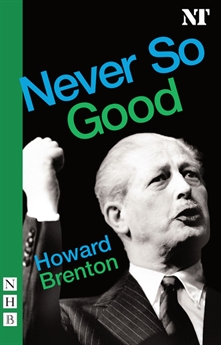
Never So Good is a 2008 play by Howard Brenton, which portrays the life and career of Harold Macmillan, a 20th-century Conservative British politician who served as Prime Minister (1957–1963). It was first performed in the Lyttelton auditorium of the National Theatre, London, on 26 March 2008; previews began on 17 March 2008.
Bloody Poetry is a 1984 play by Howard Brenton centring on the lives of Percy Shelley and his circle.

Drawing the Line is a 2013 play by Howard Brenton, centred on Cyril Radcliffe and his part in the partition of India in 1947. It premiered from 3 December 2013 to 11 January 2014, in a production directed by Howard Davies at London's Hampstead Theatre.
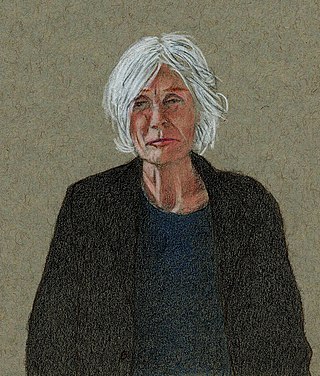
Caryl Lesley Churchill is a British playwright known for dramatising the abuses of power, for her use of non-naturalistic techniques, and for her exploration of sexual politics and feminist themes. Celebrated for works such as Cloud 9 (1979), Top Girls (1982), Serious Money (1987), Blue Heart (1997), Far Away (2000), and A Number (2002), she has been described as "one of Britain's greatest poets and innovators for the contemporary stage". In a 2011 dramatists' poll by The Village Voice, six out of the 20 polled writers listed Churchill as the greatest living playwright.
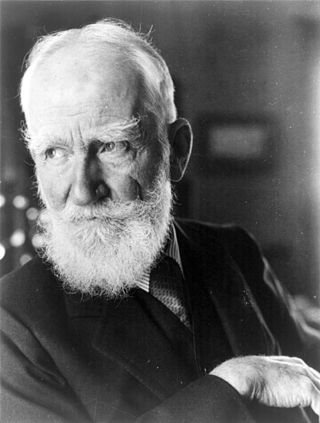
Village Wooing, A Comedietta for Two Voices is a play by George Bernard Shaw, written in 1933 and first performed in 1934. It has only two characters, hence the subtitle "a comedietta for two voices". The first scene takes place aboard a liner, and the second in a village shop. The characters are known only as "A" and "Z".

Science fiction theatre includes live dramatic works, but generally not cinema or television programmes. It has long been overshadowed by its literary and broadcast counterparts, but has an extensive history, and via the play R.U.R. introduced the word robot into global usage.
